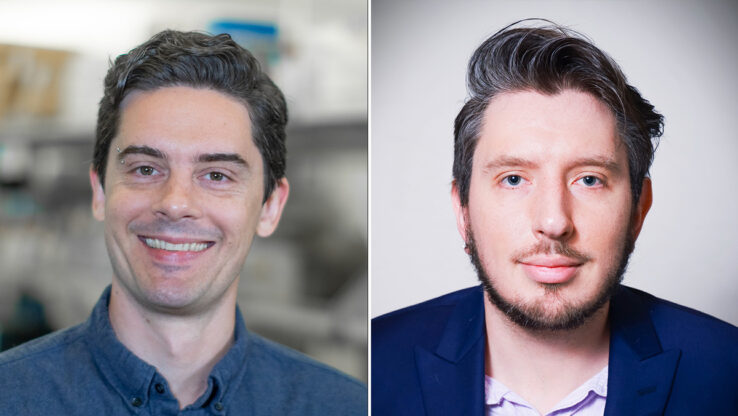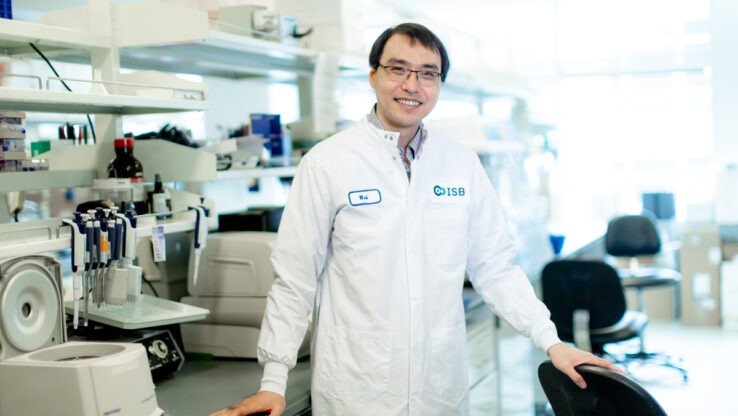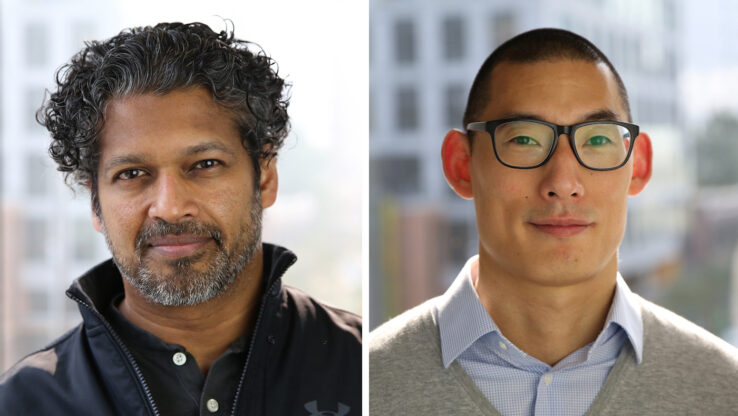New Study May Provide Knowledge for Increased Biofuel Production from Unicellular Algae
 isbscience.org/news/2019/03/20/new-study-may-provide-knowledge-for-increased-biofuel-production-from-unicellular-algae/
isbscience.org/news/2019/03/20/new-study-may-provide-knowledge-for-increased-biofuel-production-from-unicellular-algae/
ISB Principal Scientist Dr. Mónica Orellana and ISB Senior Vice President and Director Dr. Nitin Baliga.
When starved for nutrients such as nitrogen, algae accumulate copious amounts of energy-rich lipids, which can be harvested and used as biofuel. Algae-based biofuel has the potential to serve as a sustainable replacement for fossil fuels. However, for biofuels to become a commercially viable solution, it is essential to more than double the total amount of lipids accumulated within algae.
“This is a systems biology problem,” said ISB Senior Vice President and Director Dr. Nitin Baliga. “Nutrient starvation not only arrests accumulation of biomass, but also it causes loss of biomass by inducing programmed cell death within the algae.”
In a study published in the journal Phycological Research, Drs. Santosh Sathe and Pierre Durand of the University of the Witwatersrand (South Africa) and Drs. Mónica Orellana and Baliga of ISB, report how lipid accumulation and programmed cell death are intertwined within the chlorophyte algae Chlamydomonas reinhardtii. Their findings suggest that lipid accumulation and programmed cell-death are coordinated processes that have evolved for sustaining algal populations in harsh environments.
Orellana put their findings into perspective by stating that “knowledge of how lipid accumulation and cell death are coordinated will enable strategies to substantially increase biofuel production from algae by blocking key steps in the programmed cell death pathway to prevent loss of biomass and retain high levels of lipids.”






